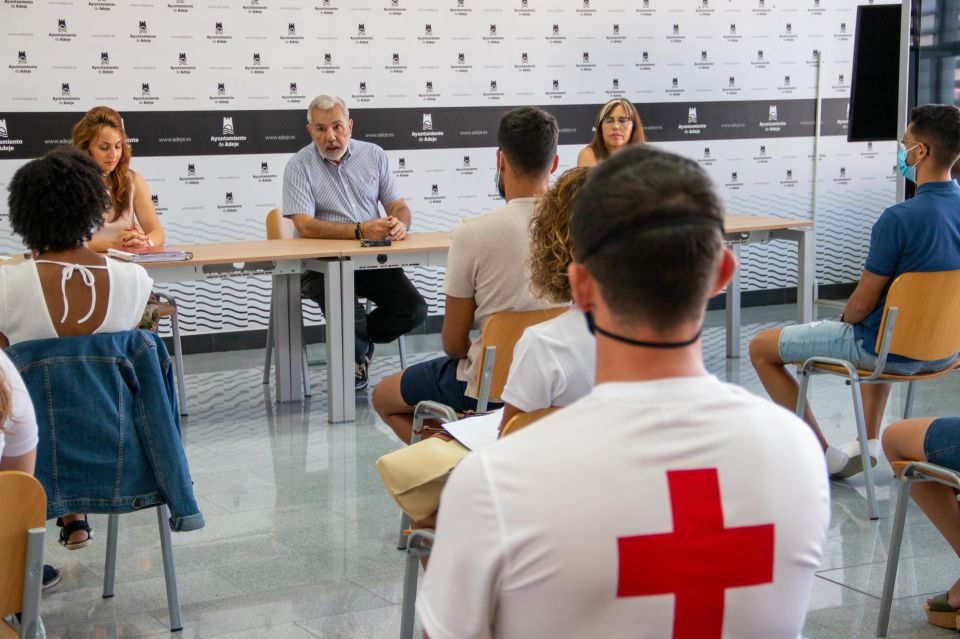The Adeje mayor José Miguel Rodríguez Fraga recently announced details of two plans that the council are backing to help members of families most affected by the Covid-19 pandemic in the borough. The two initiatives will help school children bridge the ‘digital gap’, to escape any risk of social and educative exclusion, and the elderly who may be housebound, to prevent cognitive deterioration.
“We are working on a cross-departmental project involving two hugely important areas, Community Wellbeing and Education, with the aim being to redress the inequalities which the Coronavirus has left behind”, commented the Adeje mayor José Miguel Rodríguez Fraga, who added “we are helping those who find themselves in a situation of clear vulnerability and which directly affects young and old”.
The mayor referred to the fact that “even though this isn’t actually part of the council’s work as far as we are concerned it is our responsibility, helping the more vulnerable sectors of our borough to reduce, as much as we can, the ‘social gap’; there is, for example, a big difference between having family here or not, a big difference in having financial back-up or not, and we know there are as many children as elderly members of our society at risk.
“These projects will also be linked to initiatives in other council departments – youth, social services, culture, citizen needs, etc, but our singular goal is the general wellbeing in these difficult times”.
The ‘apoyo escolar y digitalización’ (school and digitalisation aid) will be a means of reinforcing formal education, creating a space where children can carry out activities on line to improve their performance in school, develop a sense of self-esteem, individuality, and improving their digital abilities which in turn helps with personal independence. To close the digital gap the council will facilitate the loan of technology and internet connections to encourage digital competence and help these young people to do studies and homework, particularly if there is another period of confinement due to localised outbreaks of the virus.
The project is designed to improve the educational prospects of the students who are at risk of social disadvantage or are suffering from other problems. For those in primary education the emphasis will be also to organise extra tuition after or outside school hours to improve in key subjects, Spanish (lengua castellana y literature) and Maths. The classes and assistance should also help the student reach a basic level in primary education and develop digital competency. The students will, it is hoped, develop healthy work and study habits and a love of learning.
This education initiave is taking place during the months of July, August and September and may continue during the school year, where it would be scheduled for the afternoons. Up to 100 children in Adeje will benefit, with evaluation carried out by school teachers and members of the Adeje social services team. The summer classes are taking place in the borough’s cultural centres with classes for children from 1st, 2nd and 3rd year from 11am – 1pm and those from 4th, 5th and 6th from 9am – 11am.
Regarding the programme for the senior citizens of the borough, this is designed to prevent cognitive degeneration, and will involve cognitive psycho-stimulation and physiotherapy for people in their home. There will be physical and mental stimulation designed to avoid deterioration, improve personal independence in daily life and therefore upgrade the quality of life for the individual and their family who may also be caring for them.
The Cruz Roja (Red Cross) will be charged with contracting qualified and specially trained personnel where needed for the programmes mentioned. The council will be using some of the budget surplus to pay for these programmes, both of them clearly covering social needs. As well as trained primary school teachers they are hiring psychologists, physiotherapists, an occupational therapist and 3 social educators.
